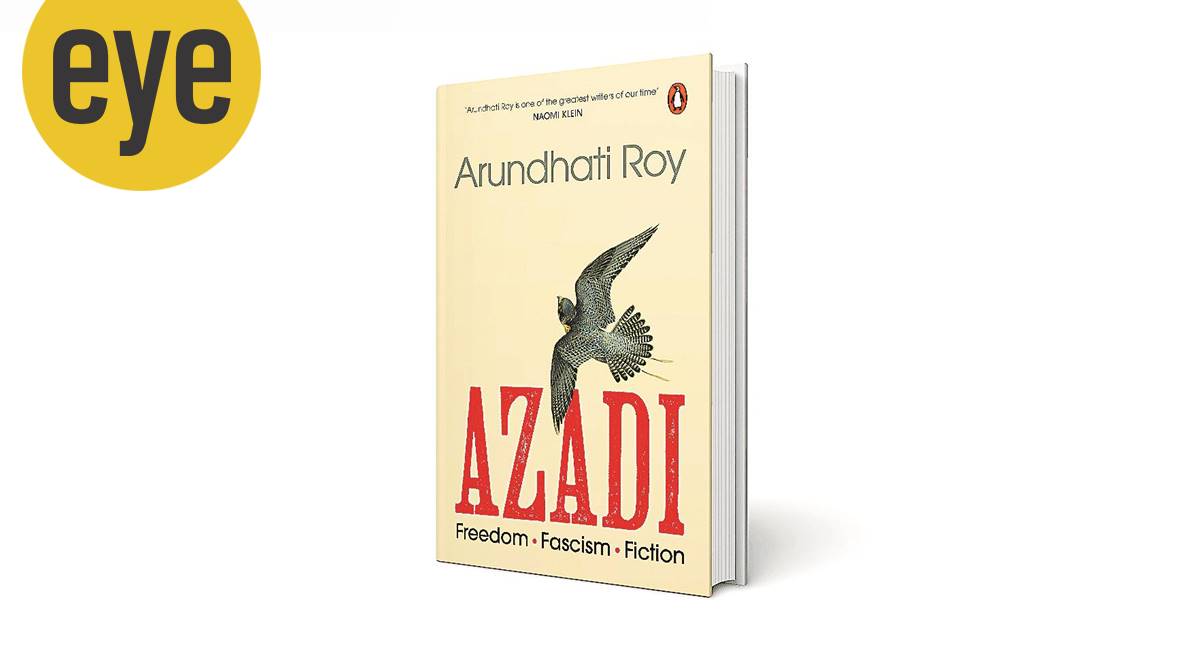In this collection of nine essays, writer Arundhati Roy theorises justice in a broken world
When Modi announced the nationwide lockdown on 24 March, India spilled out her terrible secrets for all the world to see. What lies ahead? Reimagining the world. Only that.”
That’s how the introduction of Arundhati Roy’s latest book Azadi: Freedom, Fascism, Fiction, ends. It may not be customary to review a book starting with the last line of its introduction but these lines define the very kernel of Azadi. This anthology of nine essays is about reimagining a world in the midst of ruins. Ruins, we assume, are silent. Azadi captures the voices from the ruins. It is an amalgam of language, hope, love, fiction and history.
The best part of Azadi is its strange ability to shout and scream as well as to whisper softly into our ears. The book is an amalgam of two similar but distinct Roys — Roy, the storyteller, and Roy, the political realist. The first essay, “In What Language Does Rain Fall over Tormented Cities?” is an elaborate maze of Roy’s ability to discuss the power of language and translation through one of her most intricate novels, The Ministry of Utmost Happiness (2017). Besides discussing the many vagaries of language, both public and private, the essay is a deep enquiry into the historical aspects of caste, religious bigotry, and conflicts of identity. This overarching analysis of language as a means of intellectual emancipation has a particular bearing on the title which has been adapted from Pablo Neruda’s Book of Questions (1974).
The times in which we live are times of dismay, hopelessness and anger. Across the globe, democratic apparatuses are throwing up nationalists and fascists. We have to develop ways to survive the devastation. To reimagine the world, we have to reimagine ourselves. Azadi is a manual for that survival. In the essay “Election Season in a Dangerous Democracy”, Roy cautions us against looking away from the enormous distress of the agricultural sector, increasing numbers of farmers’ suicides, the lynching of Muslims and the relentless attack on Dalits. The essay also discusses the arrest of activists in the Bhima-Koregaon case. The essay was first published in August 2018. Since then, many more have been arrested, many more lynched and many who have committed suicide. As a nation, we keep looking away. Azadi is a documentation of our “looking the other way”. In a nutshell, Azadi theorises justice in a world of conjectures.
One of the judges on the panel which awarded the Booker Prize to Roy had apparently remarked on her “heightened capacity for wonder”. Azadi brings out that wonder in all its hues. In the essay, “The Language of Literature”, there is a rare moment of self-appraisal. Roy writes, “I have never felt my fiction and non-fiction were warring factions battling for suzerainty. They aren’t the same, certainly, but to pin down the difference between them is actually harder than I imagined. Fact and fiction are not converse. One is not necessarily truer than the other, more factual than the other, or more real than the other. Or even, in my case, more widely read than the other. All I can say is that I feel the difference in my body when I am writing.”
As the pandemic rages through our land, as the rot in our healthcare system gets exposed and as more and more among us give up hope, Roy captures the chaos in the “Pandemic is the Portal”. Like a surgical wound, the essay describes her interactions with those displaced by India’s unplanned, hasty and undemocratic lockdown following the COVID-19 outbreak. In this poignant narrative, she’s reminded of what a carpenter, Ramjeet, who had planned to walk all the way to Gorakhpur, told her. He said, “Maybe when Modiji decided to do this, nobody told him about us. Maybe he doesn’t know about us.” Roy writes, “us” means approximately 460 million people.
The cover page of Azadi has a falcon in majestic flight. In Urdu, the falcon is called shaheen. Need I say more? Books like Azadi act as the repository of our consciences for these disquieting times. GK Chesterton once wrote that the way to love anything is to realise that it may be lost. We are on the verge of losing azadi in more than figurative ways. Roy’s Azadi grabs us by the collar and reminds us of just that.
Shah Alam Khan is professor of orthopaedics, AIIMS, New Delhi.
? The Indian Express is now on Telegram. Click here to join our channel (@indianexpress) and stay updated with the latest headlines
For all the latest Books And Literature News, download Indian Express App.
Source: Read Full Article


